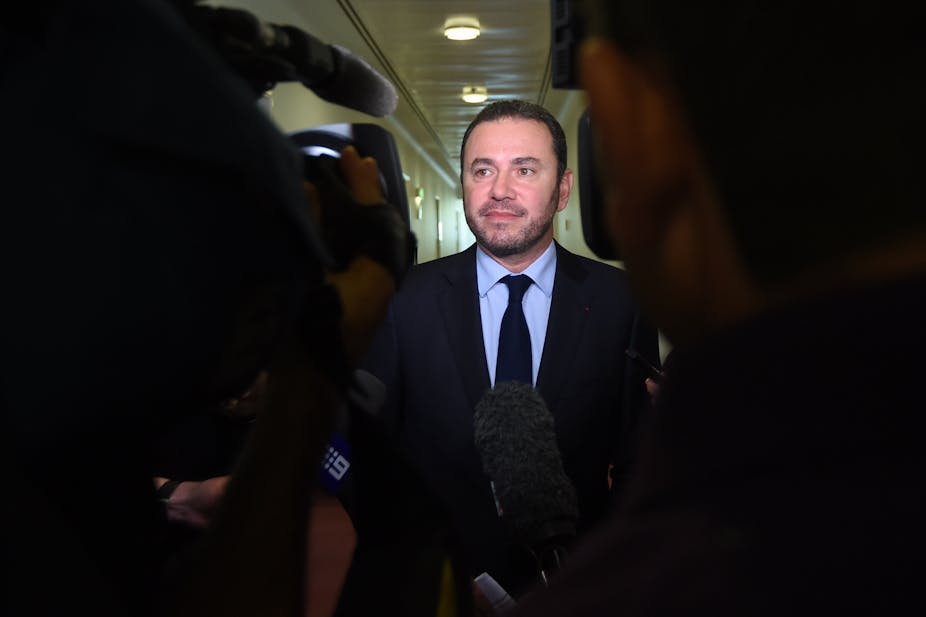France’s ambassador to Australia, Christophe Lecourtier, has urged Prime Minister Tony Abbott to attend the United Nations conference on climate change in Paris late this year.
It is assumed in the government that Abbott will not go – leaving it to Foreign Minister Julie Bishop to lead Australia’s delegation. But Lecourtier said that if Abbott was able to be there, “it will be something absolutely positive and it will give a push on the right direction”.
“The prime minister said very important things in Brisbane at the end of the G20 about the importance of the climate change issues … I do hope he will have the possibility to be our guest and to be a very important speaker at this conference,” Lecourtier said in an interview with The Conversation about France’s preparations for the Paris meeting on a new international agreement on emissions reductions post-2020.
Earlier on Monday, Abbott revealed that the government will not announce Australia’s target – which had been expected to be released this month – until August.
Abbott also derided the performance of other nations, compared with Australia, in reducing emissions.
“The difference between Australia and a lot of other countries, quite frankly, is when we make commitments to reduce emissions we keep them. Other countries make all these airy-fairy promises, that in the end never come to anything,” Abbott said.
Abbott indicated the target would be taken to the partyroom in early August. “I’m not going to flag any final position in advance of due process and proper consideration,” he told reporters. Climate change issues are delicate in a party that includes many doubters, who do not believe Australia should sign up to anything that’s ambitious.
Australia would take “a very strong and credible position” to Paris, Abbott said. It would “build on the 13% reduction in emissions from 2005 levels that we are well and truly on track to achieve by 2020”.
“Australia doesn’t get enough credit for the emissions reduction work that we have already done,” Abbott said.
Lecourtier said that “we’re hoping and expecting a rather ambitious target” from Australia.
“The only thing we always tell the Australians – but I know they are quite aware – is that time is running short. If we really want to make 2015 a decisive year, they need to join us as soon as possible with an ambitious target. Because we do believe that this country that has been doing so well in so many fields during the last 25 years … this great country of Australia is an influential country.
"We’re talking about a country that can open the way to others and that is already a leader. So we want this leader to be a frontrunner, a frontliner, together with us. I’m confident that this will happen in the coming weeks.”
Lecourtier said it “would be sad if somebody was able to say that in the fight against climate change – in the defence of what is a common good – Australia hasn’t been a frontliner”.
“I do hope that Australia, as your country has always done in other fields … will join this coalition and will be part of the momentum.”
Lecourtier said France had been having a lot of discussions with people within government. He was impressed by the method – identifying options for the decision by the cabinet and Abbott – being followed for setting the Australian target.
Although Abbott does not want to attend the Paris meeting, he has little excuse not to go. The Commonwealth Heads of Government conference is in nearby Malta on November 27-29. The Paris conference runs from November 30 to December 11. Lecourtier said the aim was to have some leaders there at the start and/or just before, to give “a political push”.

